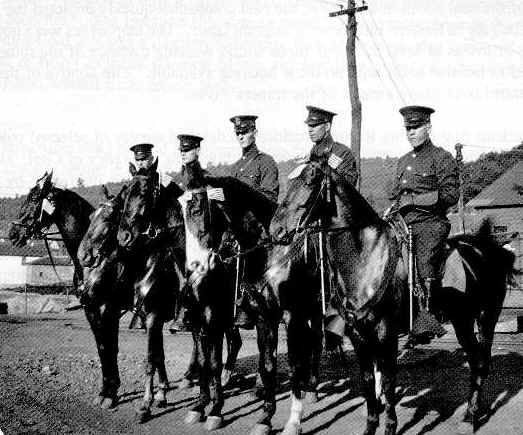 In 1865, the Pennsylvania State
Legislature passed State Act 228 which empowered the railroads to organize private
police forces. In 1866, a supplement to the act was passed extending the privilege
to "embrace all corporations, firms, or individuals, owning, leasing, or
being in possession of any colliery, furnace, or rolling mill within this commonwealth."
In 1865, the Pennsylvania State
Legislature passed State Act 228 which empowered the railroads to organize private
police forces. In 1866, a supplement to the act was passed extending the privilege
to "embrace all corporations, firms, or individuals, owning, leasing, or
being in possession of any colliery, furnace, or rolling mill within this commonwealth." The men of the private police forces were called "Coal and Iron Police" and received commissions from the state although their salaries were paid by the various coal companies for whom they worked. The 1866 supplement also stipulated that the words, "coal and iron police" appear on their badges.
Although they were hired to protect the property of their respective coal companies and the homes of coal company officials, they were used to intimidate and break up striking mine workers, and if necessary, evict them and their families from their homes. In some communities the coal and iron police were accused of assault, kidnapping, rape, and murder. On June 30, 1931, Governor Pinchot revoked all coal and iron police commissions. Some older McIntyre residents remember coal and iron police in their town during periods of labor unrest. This photo from the 1930s, shows the Lackawanna Coal and Coke Company Coal and Iron Police in Vintondale, Pennsylvania, during the miners' strike of 1922. Vintondale is in the southwest central part of the state.